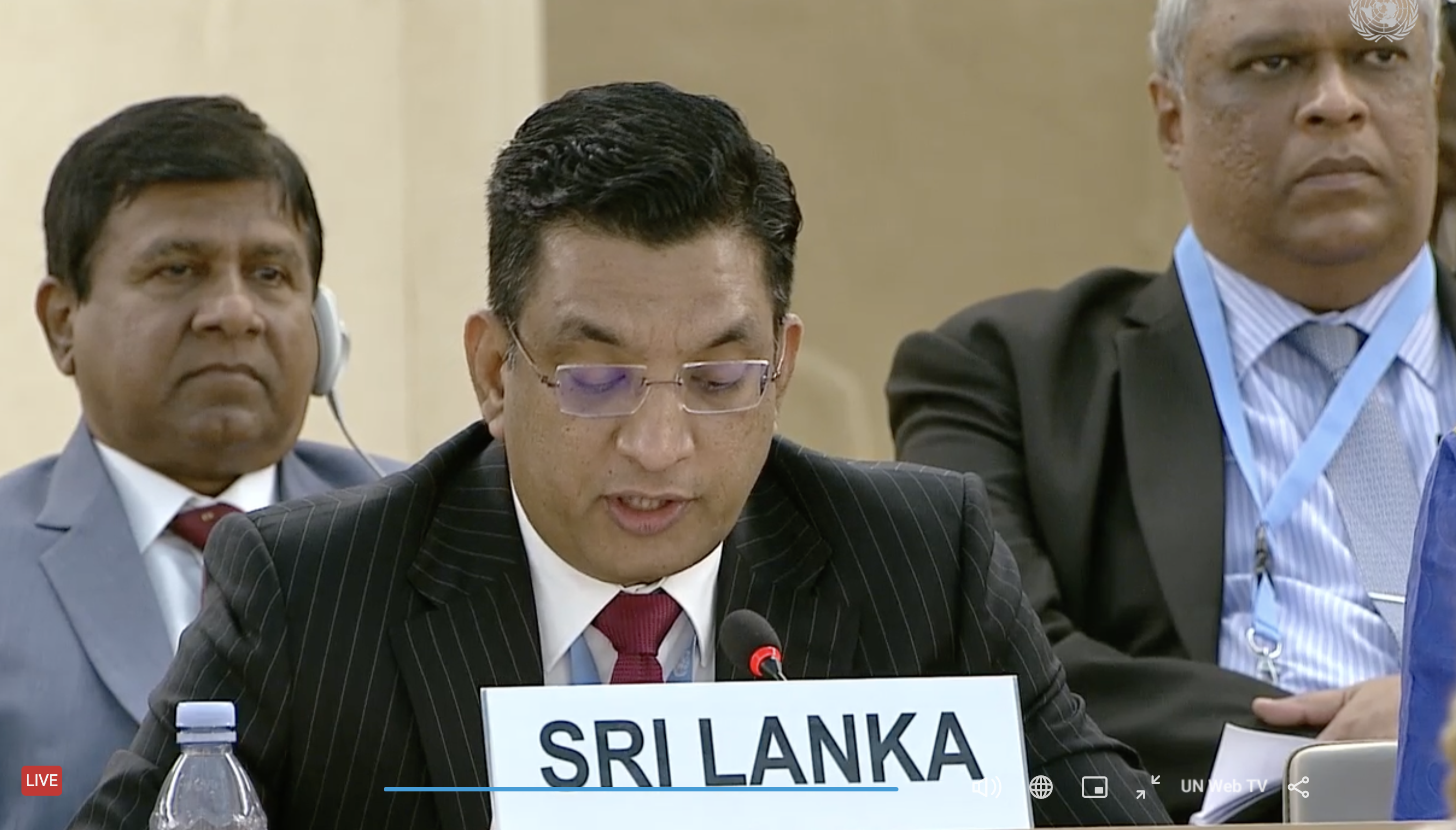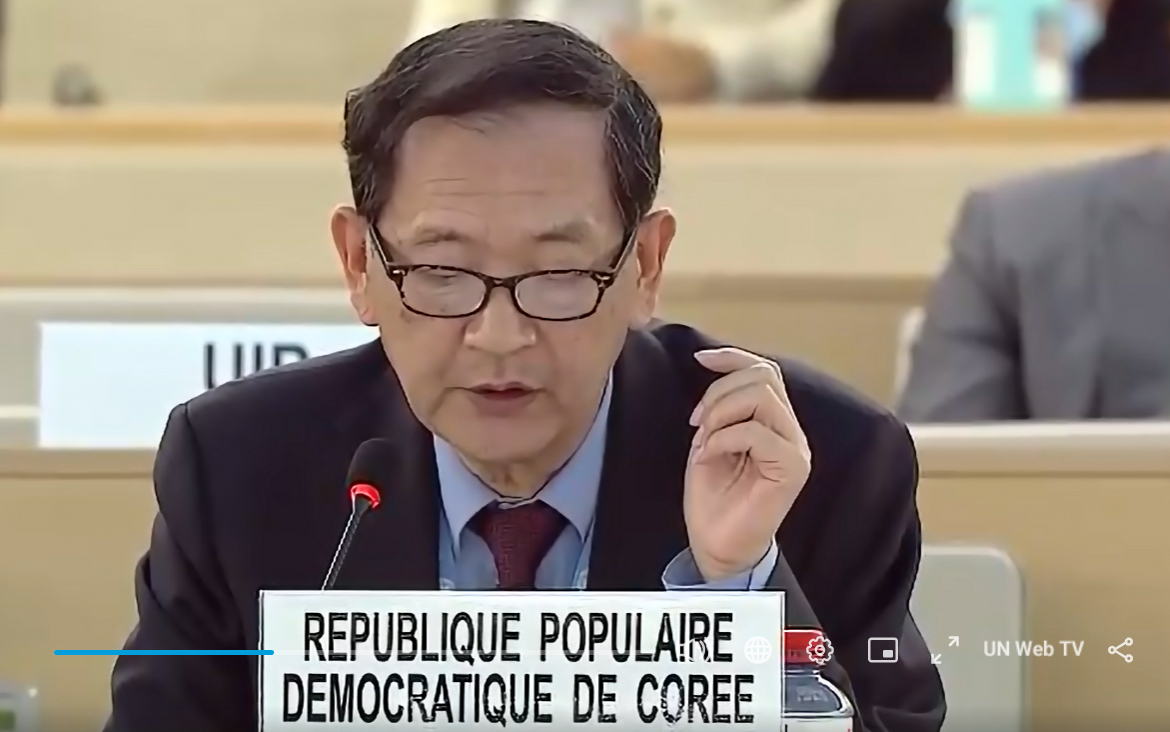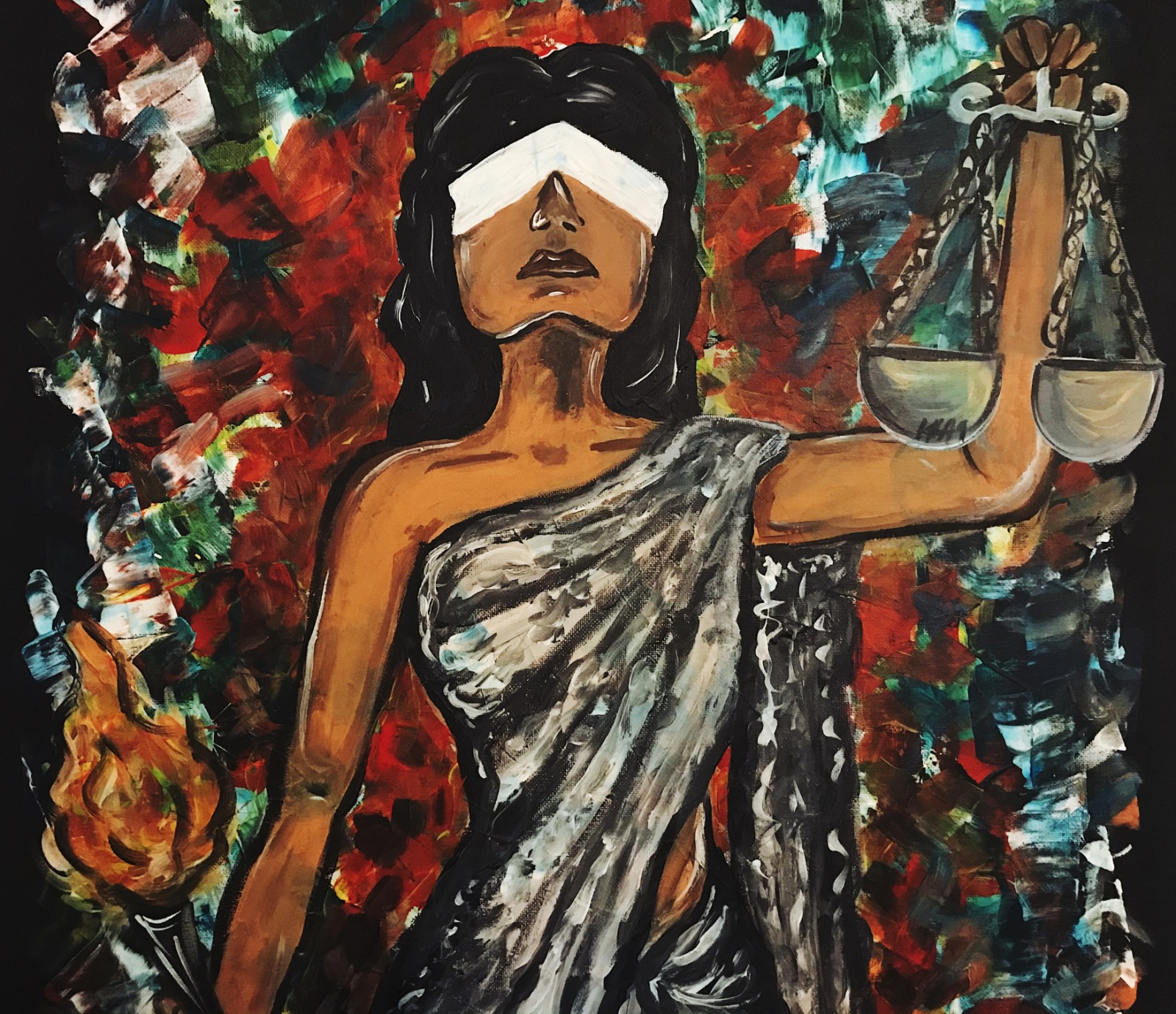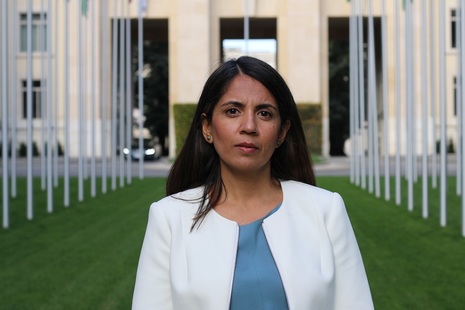With the release of the revised draft resolution, Tamil Guardian looks back at the proceedings of the 51st UN Human Rights Council session.
‘Impunity remains a central obstacle’ – UN High Commissioner report
Prior to 51st session, the former UN High Commissioner released a scathing report on Sri Lanka outlining the deepening militarisation, the continued harassment of Tamil survivor communities, and the deterioration of human rights on the island.
“Thirteen years since the end of the war, victims of past human rights violations continue to await truth and justice. The Sri Lankan State, including through successive governments, has consistently failed to pursue an effective transitional justice process to hold perpetrators of gross human rights violations and abuses accountable and uphold victims’ rights to truth, justice and reparations. Rather, they have created political obstacles to accountability, and actively promoted and incorporated some military officials credibly implicated in alleged war crimes into the highest levels of government. This impunity emboldened those committing human rights violations and created a fertile ground for corruption and the abuse of power” the report notes.
The report maintains that “impunity remains a central obstacle to the rule of law, reconciliation and Sri Lanka’s sustainable peace and development, and remains the core risk factor for recurrence of further violations”.
Ahead of this session, there was growing demand voiced by several human rights organisations for a strong resolution to end a pervasive culture of impunity and bring justice to victim communities.
Interviews with civil society actors
Speaking to civil society actors in Geneva, Tamil Guardian’s journalists found this widespread belief in the need for a strong resolution and scepticism over the ability for a domestic mechanism to deliver justice.
Sandya Ekneligoda, wife of forcibly disappeared journalist and human rights activist Prageeth Ekneligoda, gave a damning indictment of Sri Lanka’s judiciary maintaining that it is not “free and independent” and could not deliver justice for victims.
Jaffna Mayor, Mayor V Mannivannan reiterated this call for a “strong” resolution that either refers Sri Lanka to the International Criminal Court (ICC) or mandates a special court to investigate Sri Lanka's human rights violations against the Tamil nation.
"Many resolutions have been passed on Sri Lanka at this Council but none have been implemented by Sri Lanka. International human rights organisations have also highlighted this," he told our journalists.
MA Sumanthiran, a spokesperson for the Tamil National Alliance (TNA) and Koorrusuwaahmy Sorrenthiran, the spokesperson for the Tamil Eelam Liberation Organisation (TELO), shared this call for Sri Lanka to be referred to the ICC. The Association Culturelle Tamoul en France similar put forwards this demand for Sri Lanka to be referred to the ICC.
Speaking with Gary Anandasangaree, a Canadian MP for Scarborough-Rouge Park, the Canadian MP emphasised how self-determination was inextricably linked to economic development and the need for demilitarisation.
Country responses to report
‘A persistent culture of impunity’ – Western governments slam Sri Lanka’s human rights record
During the 51st session of the UNHRC, western governments responded to a damning report by the UN High Commissioner, which revealed the “active reversal” of progress on accountability, and voiced alarm over Sri Lanka’s “persistent culture of impunity” and deepening militarisation.
Amongst the Western governments who voiced concern are the United States, America, the EU, and Ireland.
Sri Lanka’s foreign minister slams report for ‘violating sovereignty’

Sri Lankan Foreign Minister Ali Sabry said the government "fundamentally" disagreed with the legitimacy of the UN Resolution 46/1 and claimed that the resolution violates the "sovereignty of the people of Sri Lanka" as the 51st session of the United Nations Human Rights Council opened this morning.
He insisted that Sri Lanka "would endeavour to establish a credible truth-seeking mechanism" to address human rights violations and to promote reconciliation.
Throughout this week Tamil both in Sri Lanka and in Geneva reported that they are continuously monitored and harassed by Sri Lanka’s security forces. In Batticaloa and Jaffna, demonstrations were held calling on the Sri Lankan government to end its harassment of journalists and civil society organisations.
The leaders of the Mullaitivu Association of Relations of Enforced Disappearances condemn Sri Lankan Foreign Affairs Minister Ali Sabry's statements at the 51st session of the United Nations Human Rights Council, in which he rejects international accountability mechanisms.
Rogue states rush to Sri Lanka’s defence

A coterie of rouge states including China, Russia, Iran and North Korea rushed to Sri Lanka’s defence, touting the country’s alleged progress on human rights and asserting their opposition to UN resolution 46/1.
In their defence of the Sri Lankan government, Russia’s ambassador touted the “tolerance and restraint” of Sri Lanka’s officers who were widely criticised for their crackdown on peaceful demonstrators. Amongst the states who defended Sri Lanka’s conduct were China, Russia, Iran, North Korea and a host of Latin American and African countries.
India demands implementation of 13th amendment

The Indian delegation expressed their concern over the lack of “measurable progress” on the Sri Lankan government’s “commitments of a political solution to the ethnic issue.”
He called on Sri Lanka to implement the 13th Amendment, delegate powers to the provincial councils and hold elections for the provincial councils.
The call comes despite Tamils rejecting the 13th Amendment as a political solution and have demanded recognition of their nationhood, self-determination, and sovereignty.
The UN resolution disappoints many

The draft resolution is released with a strong call to the "re-energising" of failed Sri Lankan mechanisms without commenting on long-standing Tamil demands for Sri Lanka to be referred to the ICC.
The amended resolution does little to strengthen accountability measures and the change of wording reveals a fundamental failure to recognise the root causes of Sri Lanka’s woes.
Speaking to Tamil Guardian at the 51st session of the United Nations Human Rights Council (UNHRC), representatives of the Tamil families of the disappeared reiterated their lack of confidence in domestic mechanisms such as the Office of the Missing Persons (OMP) and how the Sri Lankan state has been trying to quash their continuous roadside protests.
Our latest editorial highlights the failure of the latest resolution and the weakness of the international system in delivering justice for Tamils. Instead it is up for member states to step up and meet their international obligation to deliver of truth, justice and accountability for Tamils.

.jfif)
